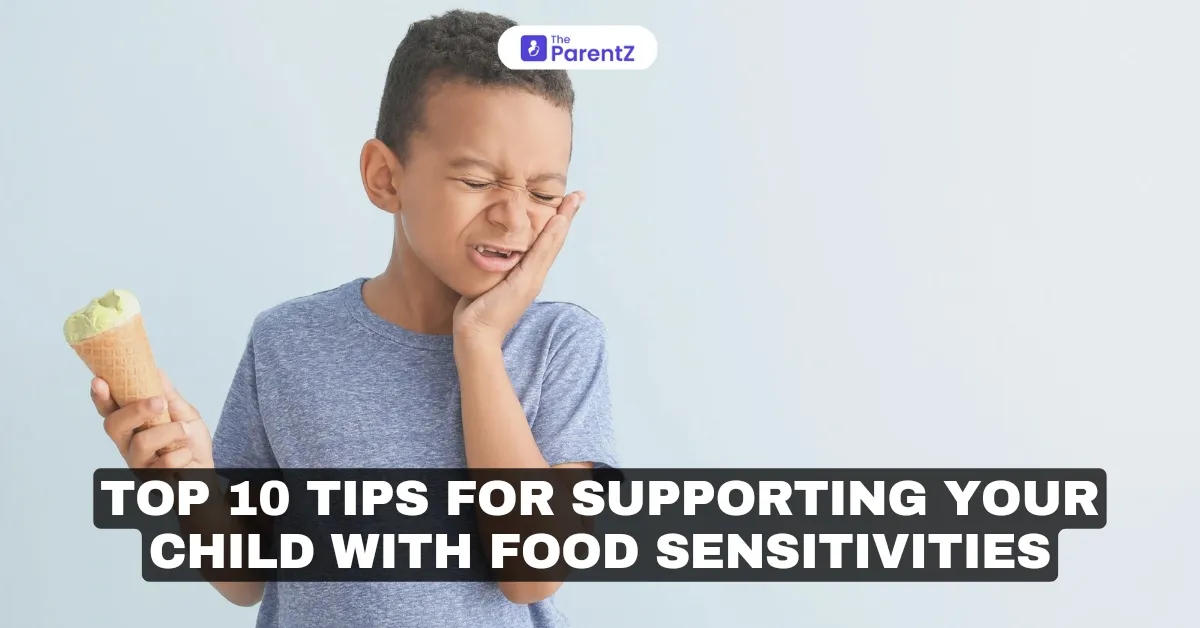We've all been there - the frustration of watching our kids struggle with food sensitivities. Maybe it's tummy aches after pizza night or a breakout after a birthday cupcake. It can feel overwhelming, confusing, and sometimes downright isolating. But take a deep breath because you're not alone! Food sensitivities are on the rise, and there are ways to navigate this journey with your child, keeping everyone healthy and happy.
First things first, let's ditch the blame game. You didn't cause this, and neither did your child. Food sensitivities are complex, and the exact reasons behind them are still being researched. The important thing is to focus on finding solutions and providing nutrition support for your child's health. So, let's explore some tips for enhancing child health while managing these sensitivities!
Tips for enhancing child health while managing these sensitivities
Tip 1: Seek Professional Guidance
While navigating the world of food sensitivities can feel like a solo mission, it's crucial to have a team on your side. Start by consulting your pediatrician or a registered dietitian specializing in food sensitivities. They can help you understand the triggers, create a safe and healthy eating plan, and address any nutritional deficiencies.
Tip 2: Become a Food Detective
Keeping a food journal is your secret weapon! Track everything your child eats, along with any reactions they experience. This detailed record can be invaluable in identifying patterns and potential triggers. Look for connections between specific foods and symptoms, like skin irritation after dairy or stomach ache after gluten.
Tip 3: Embrace Label Reading
Those tiny print ingredient lists? Your new best friend! Food manufacturers are required to clearly label allergens on packaging. Get familiar with the "Big 8" allergens (milk, eggs, peanuts, tree nuts, soy, wheat, fish, shellfish) and any other triggers your child may have. Don't be afraid to ask questions at restaurants or bakeries about hidden ingredients.
Tip 4: Stock Up on Safe & Delicious Options
Food sensitivities don't have to mean bland meals! Explore the world of alternative ingredients! There are fantastic dairy-free and gluten-free options for everything from milk and bread to pasta and cookies. Get creative in the kitchen and involve your child in trying new recipes. Remember, presentation is key! Make healthy meals fun and visually appealing.
Tip 5: Pack Prepared Snacks
School lunches, playdates, and last-minute outings can be tricky. Avoid the stress by packing safe and satisfying snacks for your child. Fresh fruit and veggies with dips, homemade granola bars, or pre-portioned nuts and seeds are always a hit. Talk to your child's school about allergy protocols and encourage them to advocate for their needs.
Tip 6: Communication is Key
Talk openly and honestly with your child about their food sensitivities. Explain what they are, why they matter, and how to navigate situations where their safe options might be limited. Empower them to make healthy choices and advocate for themselves, whether at school or a friend's house.
Tip 7: Celebrate the Wins!
This journey is full of ups and downs. When your child discovers a new safe food they love or successfully manages a social event without a reaction, celebrate those victories! Positive reinforcement will go a long way in keeping them motivated and engaged.
Tip 8: Be Patient and Empathetic
Food sensitivities can be frustrating for everyone involved. There will be times when your child feels left out or discouraged. Be patient and understanding, and provide emotional support. Let them know you're in this together and that you'll find ways to make living with food sensitivities easier.
Tip 9: Find Your Tribe
Support goes a long way. Connect with other parents of children with food sensitivities. Online forums and local support groups offer valuable advice, shared experiences, and a sense of belonging. Knowing you're not alone can make all the difference.
Tip 10: Stay Informed About Treatments
While there's no cure for food sensitivities, research is continually advancing. Stay informed about emerging treatments, such as oral immunotherapy (OIT), which can help some children tolerate previously allergenic foods. Consult with your pediatrician or allergist to discuss the possible benefits and risks of these options.
Conclusion
Navigating food sensitivities requires patience, understanding, and proactive measures from both parents and children alike. It is essential to provide nutrition support tailored to the unique needs of each child, as this can significantly impact their overall child health. Remember that every family's journey is unique; what works for one may not work for another. The key is to stay flexible and open-minded while prioritizing the health and happiness of your child above all else. Embrace the challenges together, knowing that you are both learning and growing through this experience.








Be the first one to comment on this story.